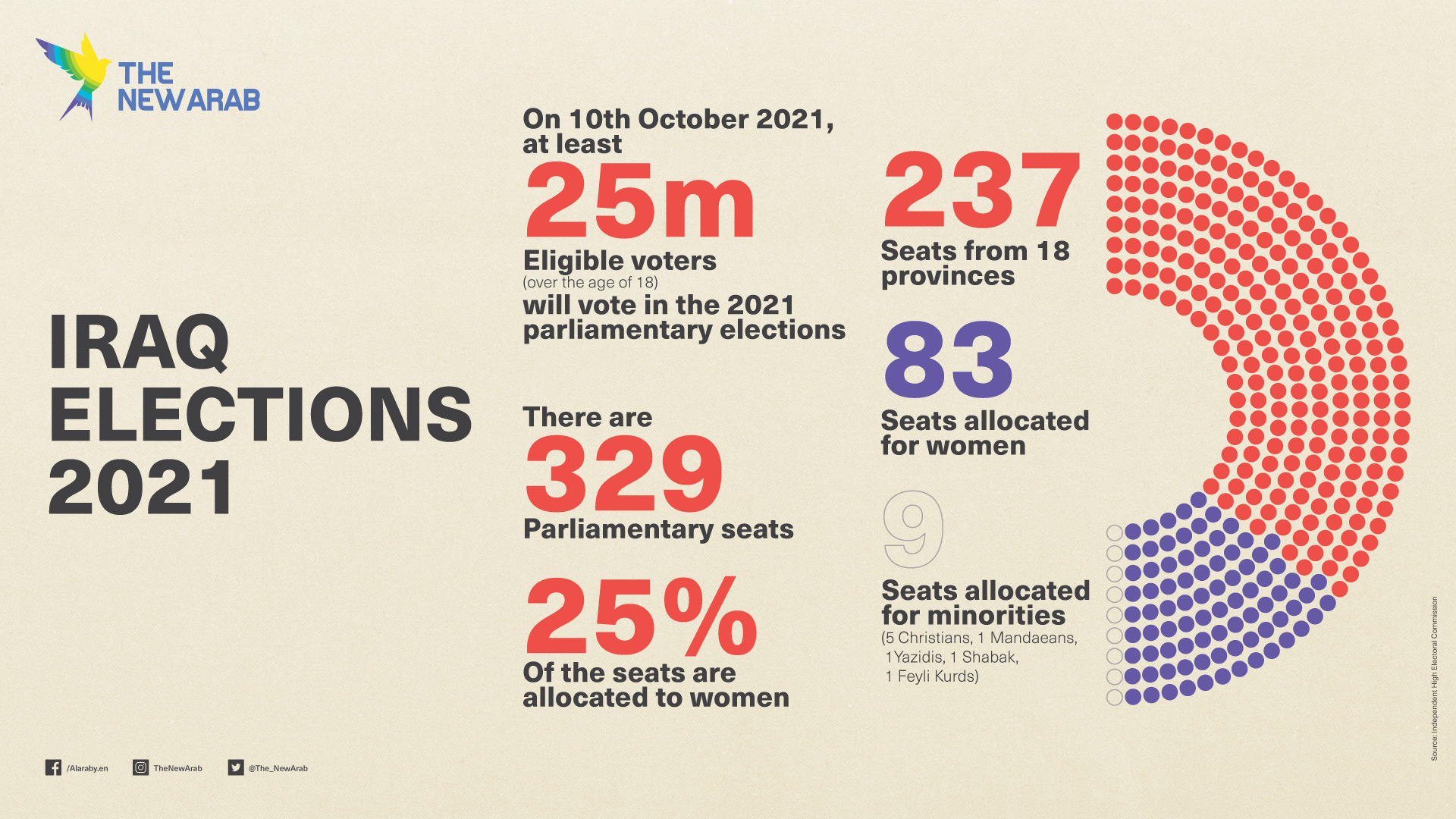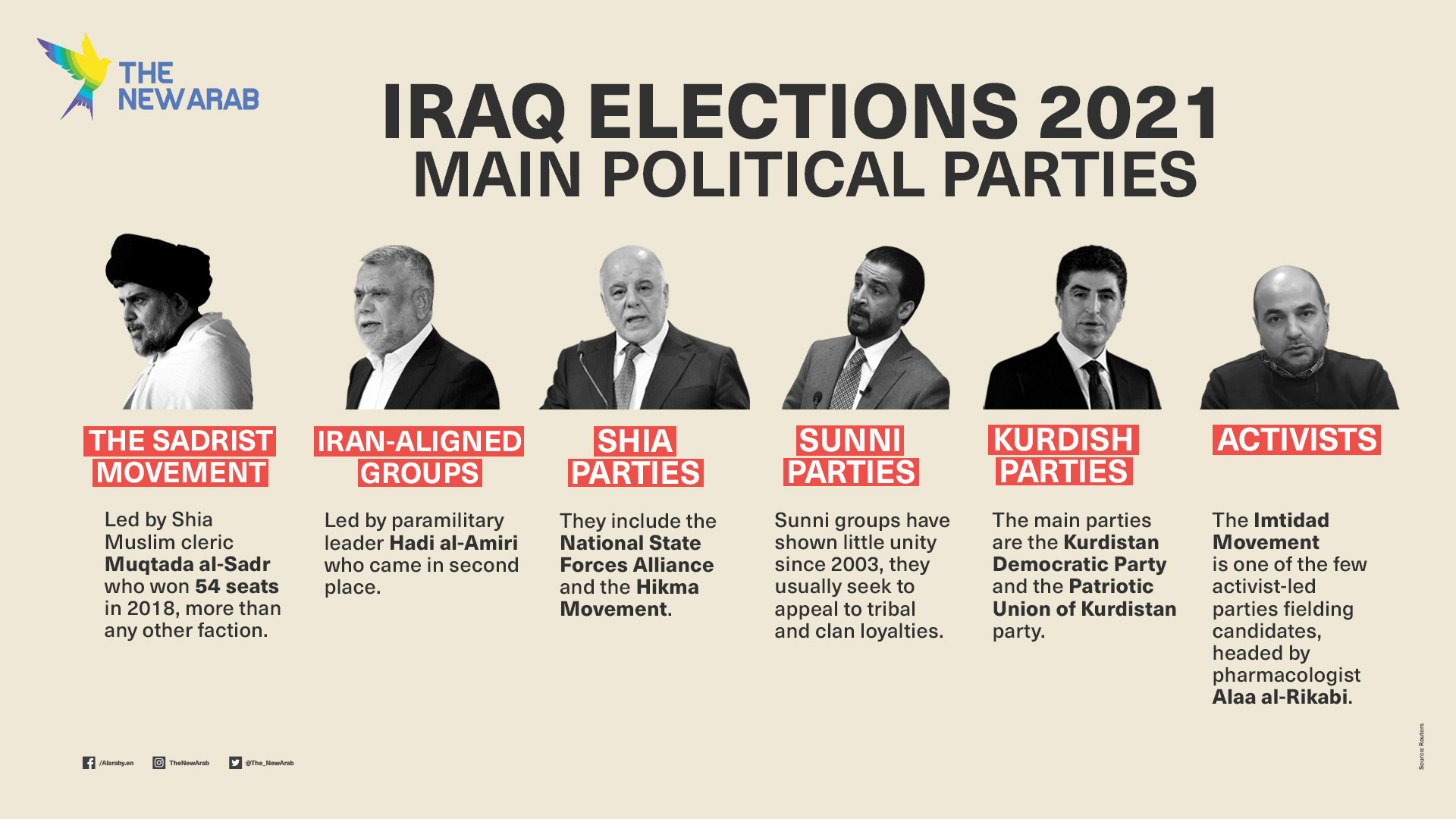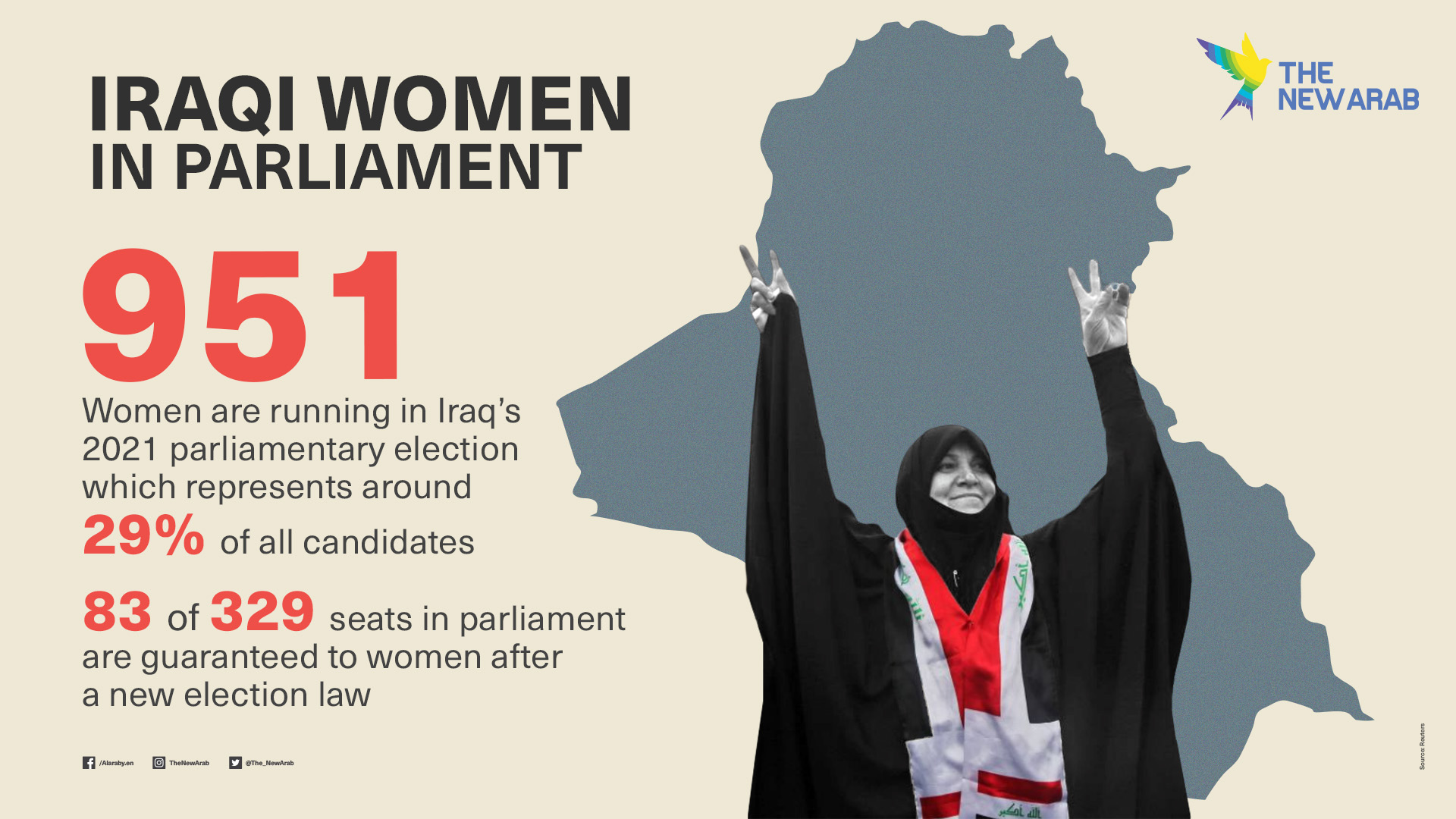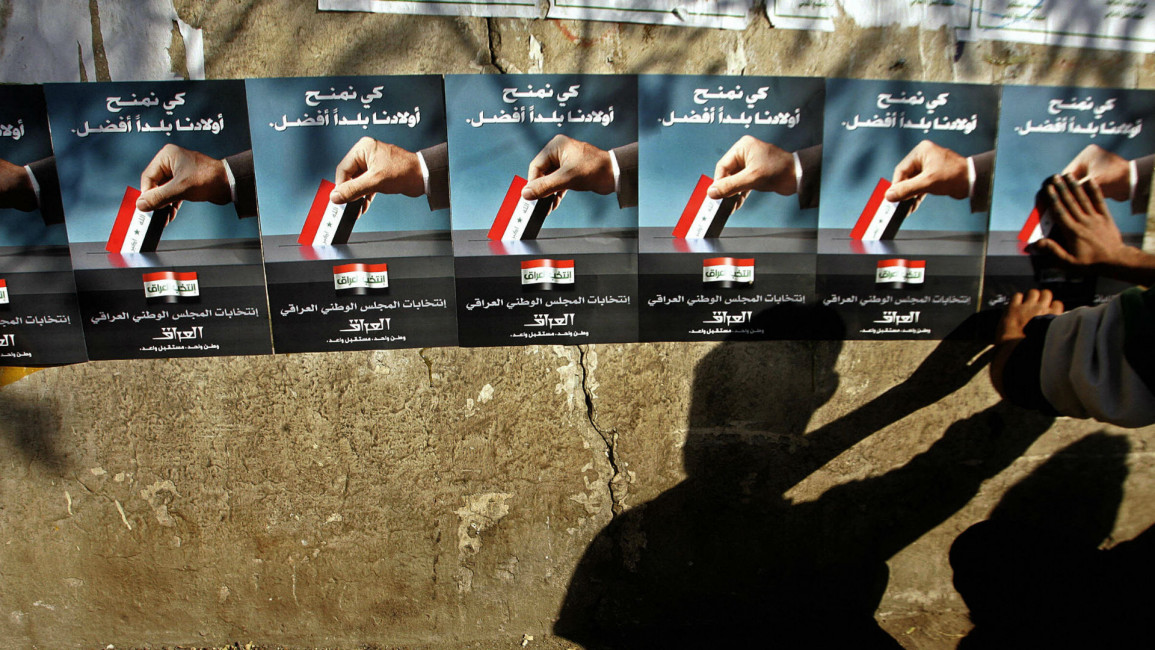Iraq elections planned to go ahead amid boycott calls and security threats
As millions of Iraqis prepare to head to polling stations on Sunday to vote in a snap election, some are sceptical that any real change will take place in a country ravaged by war and reeling under a multitude of crises.
The vote is being held six months before schedule, in line with a promise made by Prime Minister Mustafa al-Kadhimi when he assumed office in 2020.
He is seeking to appease anti-government protesters who rose up in October 2019 in Baghdad and Iraq’s south.
"I don’t think the truly independent lawmakers will create much difference in the political scene," Dr. Ihsan Al-Shammari, who heads the Baghdad-based Iraqi Centre for Political Thought, told The New Arab.
He predicted that grassroots movements could win between 15 and 20 percent of the 329-seat parliament, short of a majority.

"Traditional parties have included new blood as a facade. This means and changes nothing with their approach" to the country’s affairs, he said.
Despite growing resentment over corruption, unemployment, a lack of basic services and a broken economy, Al-Shammari said anti-government movements failed to organise themselves properly to face the mainstream parties dominating Iraq’s political scene.
Those seeking change "are not organised, are unable to unite their political stances and create alliances. This is will undoubtedly affect their ability to garner a major bloc in the new parliament."
When asked about calls to boycott the election and in which regions this was most likely to happen, Al-Shammari said this was a matter of areas living in poverty more than it was an issue of governorates.
"This has to do with governorates that have a high poverty and unemployment rate, where there is a lack of public services. Another factor could be the regions destroyed by the Islamic State (IS) which have not yet seen any real reconstruction efforts," he told The New Arab.
IS once controlled large swathes of territory in Iraq between 2014 and 2017, claiming its own Islamic caliphate in that period.
Some factions declared that they would not participate in the election. Many ordinary citizens believe the polls will be rigged and see no point in participating.
"It’s up to the voter’s conviction. There is a lack of faith among the opposition, as they feel the bigger, traditional parties will remain in control."
But Iraqi populist Shia Muslim cleric Moqtada al-Sadr in August said that he and his supporters would take part, reversing a previous decision to stay out.
Al-Shammari believes that this will now push Shia Iraqis to participate in much larger numbers.
"This will help create wider participation, more than what was expected – predictions put the numbers between 10 and 20 percent – but after this (Sadr’s decision) there will be bigger numbers," he commented.

Al-Shammari said the work of the electoral commission and international monitoring could lessen the chances of forgery and allow for a more transparent electoral process to go ahead.
The New Arab spoke to the electoral commission spokeswoman, Joumana Al-Ghalay, who said the commission was unfazed by calls to boycott the vote.
"Calls to boycott the vote do not affect the work of the commission at all, as people are aware and know that their country needs them to participate in these elections," she said.
Al-Ghalay commended the work carried out by the commission, including training female candidates.
951 women were approved for the polls out of a total of 3,500.
"A committee was formed to train women candidates and raise awareness on their rights and duties in the elections. The commission has finalised all preparations needed for the vote to go ahead smoothly in cooperation with UN bodies," she told The New Arab.

Al-Ghalay added that UN experts were available across Iraq, ready to help monitor the election.
According to Iraq’s new election law, the women's quota will ensure that the number of female MPs (83) will equal the number of electoral districts in the next parliament.
But many women running for parliament are facing growing restrains, violence and social prejudice.
Many prominent Iraqi female activists have refused to run or participate in the entire political process due to fears of being killed, kidnapped, or facing threats targeting them and their family members.
Al-Ghalay said security measures were in place, and that the higher security committee – responsible for protecting polling stations, voters, candidates and workers - was ready for the electoral process
Despite these reassurances, Al-Shammari says that another factor preventing people from participating is the presence of militias and their deliberate intimidation of voters.
"The armed factions are terrorising voters in some areas, especially where there is an ideological opposition to these groups. This is what shakes confidence in the process"
He explained that the security situation was divided between the constant threat of IS and the wide use of illegal arms.
"Security forces began executing a plan six months ago to make sure the elections went ahead peacefully, by carrying out pre-emptive strikes and preventing any attempts to disturb the electoral process."
"But the second part is the presence of arms. This remains a major challenge in the face of the elections and in the face of security institutions, especially that these arms could be used to control polling stations and sway voters decisions," he warned.
An example he gave was when armed groups took over polling stations in the 2018 parliamentary election, although the votes at these stations were cancelled.
Al-Shammari did however stress that militias were given a stern message about tampering with the safety and security of voters this time.
"Security forces have warned that they will deter (armed groups) and not allow any side, no matter who, to destabilise the electoral process," he concluded, adding that the current government’s success came down to how well it could deliver these elections.



![Squad incumbent Summer Lee has won her district's Democratic primary. [Brooke Anderson/The New Arab]](/sites/default/files/styles/image_330x185/public/2024-04/413898031_1041031157158522_8195934720767720634_n%20%283%29.jpg?h=ff8c3fa3&itok=75Sx6fbL)